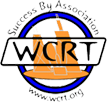
New Form of Fraud Targets Wire Transfer Instructions in Real Estate Transactions
Most Cook County real estate attorneys are affiliated as title agents with various title insurance companies. As such, they are now subject to a new form of fraudulent activity. Under this latest fraud, hackers are targeting consumers and stealing earnest money for upcoming transactions.
It has been reported recently that borrowers have received emails allegedly from a title agent attorney providing wire information to transmit earnest money for the transaction. The hackers apparently intercept emails from title agencies or title agent attorneys providing wire transfer information for borrowers to transmit earnest money for an upcoming transaction. The scammers then alter the title company’s bank account information with their own. The unsuspecting borrower wires their down payment directly to the fraudsters. These emails appear to be genuine and contain the title agency’s or attorney’s email information and/or logos and branding.
In these scams, the hackers monitor email traffic of the title agency, attorney or customer and gain knowledge of the timing of the upcoming transaction. While these scams target earnest money, an altered email could conceivably be used to cause misdirection of funds by any party in the transaction, including the title agent themselves. Because of this, Logan Law, LLC will be using encrypted e-mail or facsimile transmission to send future wire transfer information.
Feel free to contact an Illinois attorney experienced in handling all aspects of real estate closings for both buyers and sellers at Logan Law, LLC if you have questions about sale of your Chicago area real estate or any other area of the laws governing the purchase or sale of real estate.
New TRID Requirements are Delaying Residential Real Estate Closings
The new TILA-RESPA Integrated Disclosure (TRID) Rule went into effect October 1, 2015 and is already delaying residential real estate closings. TRID requires loan documentation consisting of two new forms: the Loan Estimate and the Closing Disclosure to ensure compliance. These new forms consolidate the TILA-RESPA forms and are meant to give consumers more time to review the total costs of their mortgage.
The Loan Estimate is due to consumers three days after they apply for a loan, and the Closing Disclosure is due to them three days before closing. However, the three day rule is only applicable if the disclosure is delivered personally. If the disclosure is delivered any other way, the Rule “deems” the disclosure was made three business days later, making the disclosure period six or more days before the closing.
Because there are huge potential penalties to mortgage lenders if they do not make the required disclosures on a timely basis, mortgage lenders are interpreting the new rules very conservatively and are adding additional days for the disclosures as a cushion. Thus, rather than using three days before closing as a cutoff, the cutoff for a particular transaction might be 7 – 10 days or more.
Feel free to contact an Illinois attorney experienced in handling all aspects of real estate closings for both buyers and sellers at Logan Law, LLC if you have questions about sale of your Chicago area real estate or any other area of the laws governing the purchase or sale of real estate.
Real Estate Tax Pro Rations in Cook County Real Estate Closings
Real Estate taxes in Cook County, Illinois are always a year behind. Thus, the real estate taxes Cook County property owners pay in 2015 are the 2014 taxes. Because real estate taxes constitute a lien against the real estate, it is customary for real estate taxes to be pro-rated as part of any real estate sale closing, based upon the most recent ascertainable taxes.
Cook County real estate taxes are billed in two installments. To make matters even more complicated, the Cook County Treasurer computes the first installment bill based upon 55% of the bill for the prior year. Thus, the first installment of 2015 taxes is billed based upon the 2014 taxes, with any difference between 2014 and 2015 actual taxes being billed in the second installment.
Because taxes have historically increased over time and Cook County tax billing lagging by a year, it is customary that real estate tax pro rations be based upon an escalation factor. Thus, purchase contracts frequently provide that the tax pro ration will be based upon 105%, 107% or even 110% of the most recent ascertainable taxes, to provide a cushion when the buyer must pay the actual tax bill for the year.
Feel free to contact an Illinois attorney experienced in handling all aspects of real estate closings for both buyers and sellers at Logan Law, LLC, if you have questions about the sale of your Chicago area real estate or any other area of the laws governing the purchase or sale of real estate.
New Mortgage Rules Likely to Delay Future Residential Real Estate Closings
The Consumer Financial Protection Bureau (“CFPB”), a new federal agency created in 2010, is imposing new financial disclosure rules for residential mortgage loans applied for on and after August 1, 2015. The new rules will eliminate the HUD-1 settlement statement which has been part of residential closings for many years and replace it with new forms, one of which, the Closing Disclosure, must be sent to the borrower/buyer a fixed number of days in advance of closing. Because large fines of as much as $1,000,000 per day can be imposed on lenders for violating the new rules, it is expected that lenders will err on the side of caution in following the new rules.
Under the new rules the Closing Disclosure, which contains all of the financial information about the closing must be received by the buyer/borrower at least three days before closing. Since it is expected that most lenders will mail the disclosure and because of the time periods for receipt of mailings imposed by the new rules, the Closing Disclosure will have to be mailed more than a week before a closing can occur. Adding to that period, the additional time to be imposed by national lenders for preparation and processing of the form, many lenders are likely to require final closing figures as much as 12 to 14 days in advance of closing.
Thus, for a real estate deal which today could be closed a day or two after final “clear to close” loan approval, the new rules will likely push off that same closing for two weeks after final loan approval.
Feel free to contact an Illinois attorney experienced in handling all aspects of real estate closings for both buyers and sellers at Logan Law, LLC if you have questions about the sale of your Chicago area real estate or any other area of the laws governing the purchase or sale of real estate.
Our Real Estate Law Service In Chicago Continues To Impress Our Clients
See why our real estate law in Chicago continues to receive rave reviews. We strive for excellence each day. Choose the best today.
Foreclosure or Other Real Estate Law Questions? Give Us a Call
In times of financial difficulties, which can happen to anyone, one major concern is homeowners who fear they may face foreclosure. Your first instinct is to hire a lawyer; however, there are steps you can take that may save your house without the added expense of attorney fees. Here are a few options you should explore before giving us a call.
Your lender may arrange a repayment plan based on your current financial situation. There can be a reduction or even a suspension of your payments for a determined amount of time. This is called a special forbearance and it is worth looking into.
A mortgage modification allows you to refinance your debt and extend the term of your mortgage loan. This helps you as it may reduce your monthly payments. If you qualify, your lender may work with you to obtain an interest free loan from HUD that will decrease your monthly payments.
Other options available to avoid foreclosure include a pre-foreclosure sale. This allows you to sell your property, pay off your loan and avoid credit rating damage. The last line of defense is a deed-in-lieu of foreclosure. Basically, this is where you just give your house back to the lender. Again, there are qualifications that need to be met before this can happen.
If you have any questions concerning foreclosure or real estate law, schedule an appointment and we will see what we can do for you.
See Why We Are The Best Choice When It Come To Real Estate Law
See why we are the best choice when it comes to real estate law. We would like to discuss your situation with you personally. Be sure to contact us soon.
Now Is The Time To Get The Best Real Estate Law Service Around
Now is the time to get the best real estate law service with us. We are passionate about what we do. Choose quality and professionalism today.
We Are Chicago Lawyers That Understand Real Estate Law
The legal definition of real property is land and anything growing on it or affixed to it or built upon it. That is, man made buildings are real property as are crops. Real property can be characterized as property that is stationary or it doesn’t move. It can also be classified as real property if it is attached to the land. Real estate is the same as real property and both terms can be used in the same sense. Real estate or real property also includes anything that might be under the property. This might include oil or gases or even minerals that can be found under ground.
Real property, as well as personal property, can be transferred. All sales involving real estate or real property need to be in writing. That way there is a record of the transfer. Real property cannot be moved, so there is a symbolic transfer that needs to occur before the transfer is recognized. In most situations, this is done by a deed transfer.
Private property is property that is commonly owned by an individual or in some cases a group of people. Public property is real property that is owned by a city, county, state or federal government. There are different laws governing private property and public property.
If you have any questions or concerns with property conflicts, you might want to hire an attorney. We are Logan Law, LLC and we understand real estate law and stand prepared to represent you. We pride ourselves in providing Chicago residents with expertise and sophistication without the hassle some other firms have.
2015 Changes to the Illinois Condominium Property Act Improve the Rights of Illinois Condominium Associations to Lease Units Obtained in Eviction Proceedings
Several legislative changes have been made in the Illinois Condominium Property Act, effective with the beginning of 2015.
In one important change, an Illinois condominium association’s rights with respect to a unit obtained in an eviction proceeding have been both improved as well as clarified. Under the new rules, an association which obtains possession of a unit in an assessment eviction proceeding has eight months after the month in which the end of the stay of enforcement of the eviction order occurs to lease the unit. The lease of the unit may be as long as 13 months. If the association fails to enter into a lease commencing within the eight month period or if the rents received within the lease period are not sufficient to make the association whole, the association must obtain approval from the eviction court to enter into a new lease or extend an old lease.
The association may, with interim court approvals as noted above, continue to lease the unit until it has collected 100% of past due assessments, statutory interest (at 9% per annum) under the unpaid judgment amount, attorney’s fees and court costs incurred in the eviction action, reasonable expenses necessary to make the unit rentable and finally all new assessments and other proper charges which accrue during the period after the eviction judgment was obtained. The eviction court retains jurisdiction to determine the reasonableness of expenses of re-renting the unit.
If you have any questions about condominium association assessment collection or other aspects of Illinois condominium law, Logan Law, LLC can give you the answer. Feel free to contact Logan Law, LLC at any time.








